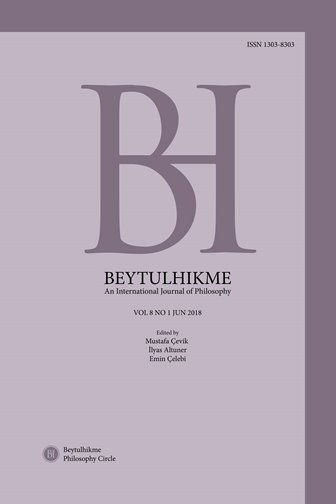Author :
Abstract
Platon’daki zihin-idea ilişkisi ile Aristoteles’in ruh kuramındaki form-madde karşıtlığı ya da energeia ve entelekhia ayrımından sonra felsefede zihin konusundaki ilk ciddi kuram Descartes tarafından geliştirilmiştir. Descartes zihni bedenden ayrı bir töz olarak ele almış ve bütün gerçek bilgilerin kaynağının zihnin dolaysız algısıyla ortaya çıkan kavramlarla oluşturulabileceğini söylemiştir. Bunun sonucunda ise bedeni bir makine olarak görmek zorunda kalmış ve sonrasında bu görüşü makinedeki hayalet metaforu ile eleştirilmiştir. Bu yazıda Descartes’ın zihin kavramına verdiği anlama ve zihnin yöntemsel işleyişi konusundaki görüşlerine değinmeye çalışacağız. Göstereceğimiz üzere, Descartes zihin konusunda dogmatik bir anlayışa sahiptir. Onu bu anlayışa sevk eden şey Tanrının insan zihnine yerleştirdiği doğuştan idelerin, insan bilgisinin en sağlam temellerini oluşturan biricik gerçeklikler olduğu görüşüdür. Bilgiye ulaşmak için bu ilkelerin dolaysız elde edilmesi yani açık ve seçik olması gereklidir ve bu da sezgi ve tümdengelim yoluyla elde edilebilir.
Keywords
Abstract
It has been developed by Descartes the severe first theory of the mind in philosophy after the relation between mind and idea in Plato’s philosophy and the form-matter dichotomy or the distinction between actuality and entelechy in Aristotle’s theory of the soul. Descartes has approached the mental substance as apart from the bodily and has told that the origin of whole truth knowledge could be made by notions from which arise direct perceptions of the mind. Eventually, he has been obliged to the body seeing as machine and afterward this conception of him has been criticized on metaphor the ghost in the machine. In this paper, we try to mention Descartes’ understanding of the concept of the mind and his thoughts about the mind on methodical function. As you can see, Descartes has a dogmatic understanding of the mind. What drives him to this understanding is the view that the innate ideas placed by God are the unique truths that constitute the strongest foundations for human knowledge. To achieve knowledge, these principles have to be obtained directly, that is, be clear and distinct, and this can be achieved through intuition and deduction.
Keywords
- Altuner, İ. (2013). Kartezyen Düalizm ve Ruhun Kavramsal Değişimi. Iğdır Üni- versitesi Sosyal Bilimler Dergisi, 4, 55-67.
- Arnauld, A. & Nicole, P. (2003). Logic or the Art of Thinking. (Trans. J. V. Buro- ker). Cambridge: Cambridge University Press.
- Çevik, M. (2017). Will It Be Possible for Artificial Intelligence Robots to Acquire Free Will and Believe in God? Beytulhikme An International Journal of Philosophy, 7 (2), 75-87.
- Descartes, R. (1954). The Geometry of René Descartes. (Trans. D. E. Smith & M. L. Latham). New York: Dover Publications.
- Descartes, R. (1955). The Philosophical Works of Descartes. (Trans. E. S. Haldane & G. R. T. Ross). 2 vols. New York: Dover Publications.
- Descartes, R. (1958). Philosophical Writings. (Trans. N. K. Smith). New York: The Modern Library.
- Descartes, R. (1971). Philosophical Writings. (Trans. E. Anscombe & P. T. Geach). New Jersey: Prentice Hall.
- Descartes, R. (1999). The Philosophical Writings of Descartes. (Trans. J. Cottingham, R. Stoothoff & D. Murdoch). 2 vols. Cambridge: Cambridge University Press.
- Descartes, R. (1999). The Philosophical Writings of Descartes: The Correspondence. (Trans. J. Cottingham, R. Stoothoff, D. Murdoch & A. Kenny). Cambridge: Cambridge University Press.
- Descartes, R. (2000). Philosophical Essays and Correspondence. (Trans. R. Ariew). Indianapolis: Hackett Publishing Company.
